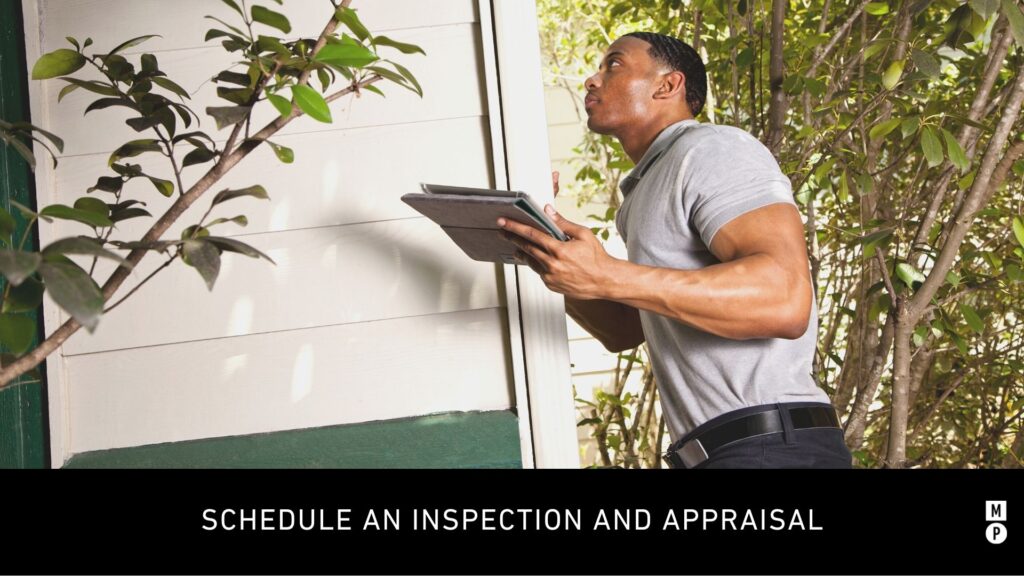Are you in the market for your first home?
If so, you’ll want to make sure you’re prepared for the journey ahead.
Buying a home is a huge decision, and it can be daunting for first-time buyers who might not know where to start. There’s a lot to think about from finding the right home to getting a mortgage and scheduling inspections.
It’s hard to know where to start when it’s your first time buying a home. Do you start by finding a real estate agent? Researching neighborhoods? Applying for a mortgage?
That’s why we’ve put together this comprehensive checklist of 7 simple steps to help first-time buyers navigate the process easily. This article will help you:
- Choose the right time to buy a home
- Find a real estate agent
- Get pre-approved for a mortgage
- Find the perfect home within your budget
- Make an offer on a home
- Schedule inspections and appraisals
- Close on your new home
- And more
By following these simple steps, you’ll be on your way to becoming a first-time homeowner in no time.
Let’s get started.
Home Buying Process Checklist In 7 Steps
Here are the essential steps for first-time homebuyers.
1. Review your finances

The first step is to take a close look at your finances. This will help you determine how much house you can afford and what kind of mortgage you’ll need. Start by evaluating your income, debts and credit score. You can use a mortgage calculator to get an estimate of how much house you can afford.
Lenders will focus on your debt-to-income ratio when you apply for a mortgage. This is the amount of debt you have compared to your income. To qualify for a loan, most lenders prefer your debt-to-income ratio to be 36% or less.
If you have a high debt-to-income ratio, you might need to work on paying down some of your debt before you can qualify for a loan.
You’ll also need to have a good credit score to qualify for a loan. The minimum credit score for a conventional loan is 620, but you’ll need a higher score to get the best interest rates.
If you’re not sure where to start, you can talk to a financial advisor or a mortgage lender. Once you have a good idea of your finances, you’ll be ready to move on to the next step.
2. Find a lender

The next step is to find a lender. You can start by talking to your bank or credit union first. They may have programs for first-time homebuyers that can help you get a lower interest rate.
You can also shop around online or talk to a mortgage broker to compare lenders. When you’re looking for a lender, make sure to compare interest rates, fees and loan terms.
I recommend talking to at least three different lenders before you make a decision. This will help you find the best mortgage for your situation.
You’ll want to make your decision based on more than just the interest rate. You’ll also want to consider the fees, loan terms, and how fast you can get the loan.
Finding a well-known local lender is a good idea. They will have experience with first-time buyers in your area and can help you navigate the process. They also might give you an advantage over online lenders when it comes to customer service.
When you’ve found a lender you’re comfortable with, you can move on to the next step.
3. Find a real estate agent

The next step is to find a real estate agent. They will help you find homes that fit your budget and needs. A good real estate agent will also be able to negotiate the price of the home and help you with the paperwork.
Start by talking to your friends and family first. They might be able to recommend a good real estate agent. You can also search online or look for agents with the National Association of Realtors.
Once you’ve found a few agents, you’ll want to interview them. Ask them about their experience, how they work with first-time buyers, and what it’s like working with them. This will help you find the right agent for you.
Finding someone who is a good fit is important. You’ll be working with your real estate agent a lot, so you want to make sure you’re comfortable with them. They will be your partner in finding and buying a home and will help you navigate the process to make sure everything goes smoothly.
4. Start your home search

Now that you’ve found a real estate agent, you can start your home search.
The first step is to figure out what you’re looking for in a home. Make a list of must-haves and nice-to-haves. This will help you narrow down your search.
You’ll also want to consider the location of the home. Do you want to be in a specific school district or be close to public transportation? What kind of neighborhood do you want to live in?
Once you’ve figured out what you’re looking for, your real estate agent can help you find homes that match your criteria. At this point, your real estate agent will do a few things.
They will help you set up home tours, accompany you to open houses, send you listings of homes that match your criteria, and provide advice on the homes you’re interested in.
Your real estate agent will be a valuable resource during your home search. They will also be able to answer any questions you have about the process.
You’ll want to take your time when looking for a home. This is a big decision, and you want to make sure you find the right home for you.
5. Make an offer

Once you’ve found a home you’re interested in, it’s time to make an offer. Your real estate agent will help you with this. They will also be able to negotiate the price of the home on your behalf.
When you’re making an offer, you’ll need to consider the price of the home, the down payment, and any other terms of the sale. You’ll also want to factor in your budget and what you’re comfortable paying.
Your real estate agent will help you come up with an offer that is fair and reasonable. They will also be able to negotiate on your behalf if the seller counters your offer.
Making an offer can be a nerve-wracking experience, but your real estate agent will be there to help you through it.
Once you’ve made an offer, the seller will have a few options. They can accept your offer, reject it, or make a counteroffer.
If the seller accepts your offer, congratulations! You’re one step closer to buying your first home.
If the seller rejects your offer, they may give you a reason why. You can then decide if you want to make another offer or move on to another home.
If the seller makes a counteroffer, you’ll need to decide if you want to accept it or not. If you don’t like the counteroffer, you can make another offer or walk away from the home.
6. Schedule an inspection and appraisal

Once your offer is accepted, you’ll need to schedule a home inspection and appraisal. A home inspection is an important step in the buying process. It will help you identify any potential problems with the home before you buy it.
The appraisal is important because it will help you determine the value of the home. This will ensure that you’re not paying more for the home than it’s worth.
Your real estate agent can help you schedule these appointments. They will also be able to answer any questions you have about the process.
Sometimes, the home inspection will reveal problems with the home. If this happens, you’ll need to decide if you want to move forward with the purchase, renegotiate the price, or walk away from the deal.
Home inspections and appraisals can be nerve-wracking, but they’re an important part of the process. Once you’ve done these, you’ll be one step closer to buying your first home.
7. Close

The last step in the process is to close on the home. This is when you’ll sign the paperwork and officially become the owner of the home.
The process is mostly financial at this point. The lender will make sure that you’re able to pay for the home and then they’ll transfer the money to the seller. They will also do final checks on your employment and credit.
At this point, you’ll also need to purchase homeowners insurance and title insurance. Homeowners insurance is needed to protect your home from damages. Title insurance protects you from any problems with the title of the home.
Your real estate agent can help you with all of this. They will also be there to answer any questions you have about the process. Although, a good lender will walk you through everything you need to do at this point and keep you updated every step of the way.
On closing day, you’ll need to bring a certified check or wire the funds for your down payment and closing costs.
There will be several documents for you to sign, but after all the paperwork is done, you’ll receive the keys to your new home.
Summary
Buying a home for the first time can be an intimidating process, but it doesn’t have to be. If you follow these 7 simple steps, you’ll be on your way to becoming a homeowner. Just remember to take your time, do your research, and work with a professional who can help you through the process. With a little preparation, you’ll be ready to buy your first home.




